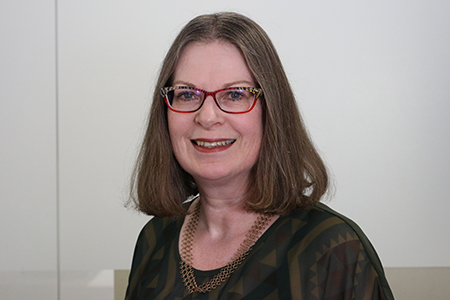Six questions with Leanne Arker, Senior Performance Auditor
 As a nurse, Leanne Arker healed the sick and cared for the injured in provincial centres across New Zealand. A drive to do things better and a rigorous course of professional development and training led her to performance auditing. Now her work drives system improvement, informs national initiatives, and challenges public service leaders – elected, or appointed – to make better, more strategic decisions.
As a nurse, Leanne Arker healed the sick and cared for the injured in provincial centres across New Zealand. A drive to do things better and a rigorous course of professional development and training led her to performance auditing. Now her work drives system improvement, informs national initiatives, and challenges public service leaders – elected, or appointed – to make better, more strategic decisions.
What was your first job in the public sector?
I was a student nurse, then became a Registered General and Obstetric nurse. I trained at Timaru Base Hospital, with the South Canterbury Hospital Board, as it was called then.
How do you think the public sector has changed the most since then?
The State Sector Act in 1988 has had the biggest impact, overall. It’s not that things didn’t need modernising – they did – but it has led to an imbalance between the value given to general management skills compared with subject-matter expertise and experience. People also change their jobs more often. Whole teams can change their staff in less than three years. So, it’s easy to understand why it can be harder for public organisations to take a long-term view and why improving services to the public can take a long time.
How did you come into your particular field of expertise?
I took a nurse advisor job with the Wellington Area Health Board, where I had about nine different managers (and almost as many jobs) in two years – though all with the same job title. The variety of work was good experience for working as a healthcare risk management consultant for an insurance broker. Along the way, I studied for my Master’s degree in Public Management. I worked as a consultant, then as a permanent employee with the Ministry of Health working in risk and assurance, then joined the Office of the Auditor-General in 2004.
Essentially, all these jobs do the same thing by different names – they’re all about quality improvement, and about continuous improvement. Performance auditing is really quite simple – it’s about answering a series of questions:
- What’s the objective the organisation is trying to achieve?
- Do the things they’re doing actually contribute to the objective?
- Is the organisation implementing those things well?
- Having done all of this, how does the organisation know whether they are achieving their objective?
All performance audits are a version of this, basically – and these are questions all departments should asking themselves, and be working on too, all the time.
What’s something that you’ve worked on during your time at the Office that stands out?
The drinking water supply audit I did last year. We started our audit shortly before the Department of Internal Affairs announced the Three Waters Review. In places, our work overlapped – we looked in depth at four councils; they looked more broadly across the country. We came to similar conclusions on some things, albeit independently. Because of the Review, we took steps to report on our work earlier than we’d originally planned.
When we released the report, members of the Governance and Administration Committee thanked us for providing a good description of the problem and told us the policies they were looking at would cover off most of the issues raised in the report.
Since then, a new regulator has been announced, and in due course, a new crown entity will be set up. You don’t often get a piece of work where all of this comes together in such a relatively short time frame.
What’s your favourite thing about working at the Office?
The variety of the work – and we meet some great people. We know that no one goes to work to do a bad job, and there are some amazing people out there thinking about how they can do things better, often in difficult circumstances. Our job is to provide assurance that things are going well and say what we think needs to improve when they are not.
What do you think is the greatest challenge facing the public sector?
Short-term thinking. People often aren’t clear enough about why they are doing something. Not enough time is spent on being clear about why something needs to change, and what they are trying to achieve.
Organisations too often don’t carve out enough time to plan how they can do a thing well. Then, having implemented something, very often little attention is given to assessing how much of the expected benefits have actually been achieved – and if there have been unintended consequences that need to be addressed. Instead, they go on to the next project.
Read our previous Six Questions interviews:
